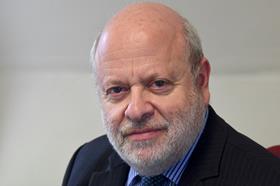A few days ago, a man was arrested who had apparently travelled from California to Maryland with the intention of assassinating Justice Brett Kavanaugh of the US Supreme Court. The arrested man said that he had been distressed by the school shootings in Uvalde, Texas and concerned about the upcoming Supreme Court decision in the abortion case which might overturn Roe v Wade.

Assassination of judges in the US is relatively rare, but not unknown. At about the same time as the Kavanaugh arrest, a retired judge in Wisonsin was shot dead by a man whom he had once sentenced to prison.
The Kavanaugh arrest followed prior demonstrations which took place outside the houses of two anti-abortion justices of the US Supreme Court, Kavanaugh himself and Justice Samuel A. Alito Jr. These protests caused much dissent. Republicans wanted the police to act much more vigorously; Democrats pointed out that those same Republicans seemed to have no problem with protest when it involved storming the US Capitol on 6 January 2022. There followed a protest outside the house of one of the Kavanaugh protesters.
On and on it goes. The temperature rises and violence is just below the surface.
The temperature is rising here as well. We are yet to see what responses will be made to future judicial decisions which do not go a certain way in cases related to the Rwanda removals policy and the proposed legislation on disapplying parts of the Northern Ireland Protocol.
But we have seen a response to the fact that lawyers represented clients in litigation against the Rwanda removals policy: ‘Lawyers bid to ground first Rwanda flight’ said the Daily Mail.
More significantly, it was accompanied by an article which named the lawyers and law firms concerned, and associated them with information which the newspaper thought would discredit them – for one firm, ‘Staff have also reportedly boasted of mixing with senior Labour Party figures’, and for another that it had worked with Phil Shiner who ‘was struck off as a solicitor for dishonesty over his handling of war-crime allegations against the Army’ (though the article confirmed that the firm in question now had been cleared of any wrongdoing). The article’s title: ‘Revealed: The piously lefty cabal who fought so hard to ground a jet of Channel migrants bound for Rwanda’.
The court case last week on the first deportation flight went the government’s way. At the time of writing, the outcome of future litigation – and the treatment of the judges involved – is unknown.
At the same time as these events, the All Party Parliamentary Group (APPG) on Democracy and the Constitution published the results of ‘An Inquiry into the impact of the actions and rhetoric of the Executive since 2016 on the constitutional role of the Judiciary’.
The APPG report contained some alarming facts:
- the 2020 Judicial Attitudes Survey found 94% of judges are now concerned over lack of respect from the government and 85% from the media;
- the Supreme Court, repopulated since the Miller Brexit case, has made a total of 7 reversals of its previous decisions in relation to the government (causing a previous Lord Chancellor to say he was ‘encouraged by recent decisions’); and
- before 2012 an appointee remained as Lord Chancellor for an average of 4.7 years, but since 2012 the average tenure has been just 1.4 years.
The Gazette covered the aspect of the report which highlighted the changing roles of those government ministers whose traditional duties are to defend the independence of the judiciary and the rule of law. These roles will again be tested in the coming weeks – certainly for the Lord Chancellor and the Attorney General – not only around the Rwanda removals policy but also the legislation on the implementation of the Northern Ireland protocol.
As usual, America is more extreme and more violent, but there are similarities in the rising polarity and heavier stresses being placed on established institutions which are suddenly in the firing line, including our own profession.
One of the responses to this new situation was launched last week: the decision by the International Bar Association to launch a project examining the role of lawyers as ethical gatekeepers. This will be a long-term project which will not come up with quick fixes – are there any quick fixes? - but which will try to find positive messages to the new criticisms made of lawyers, such as the allegation that it is lawyers, and not their clients, who are trying to block the Rwandan flights.
In the meanwhile, it would obviously be best if everyone calmed down. But with war, a cost of living crisis coupled with inflation, and the wounds of Brexit still not healed, the likelihood is that the temperature will continue rising, and the threat of violence will remain a risk, too.
Jonathan Goldsmith is Law Society Council member for EU & international, chair of the Law Society’s Policy & Regulatory Affairs Committee and a member of its Board. All views expressed are personal and are not made in his capacity as a Law Society Council member, nor on behalf of the Law Society
This article is now closed for comment.































7 Readers' comments